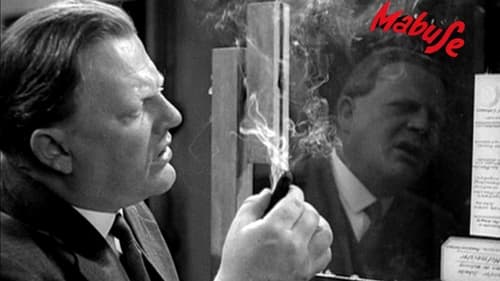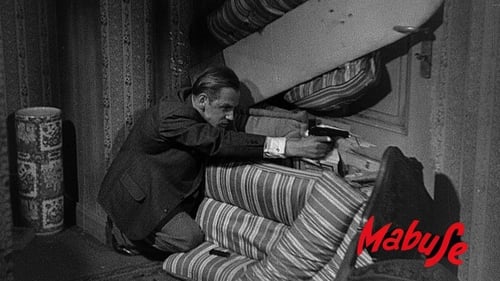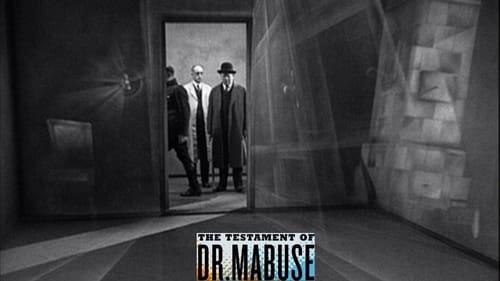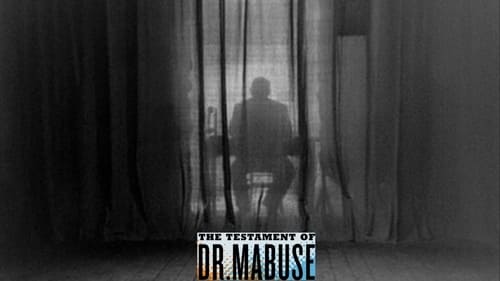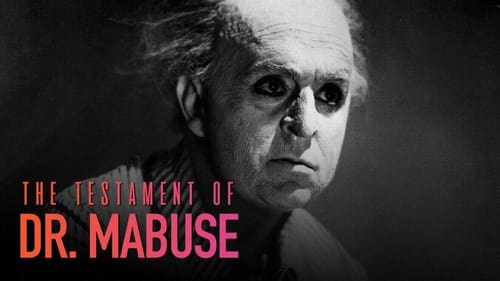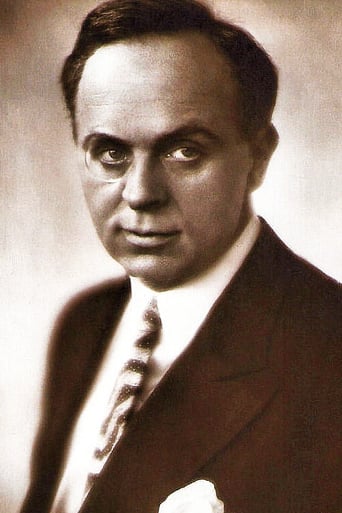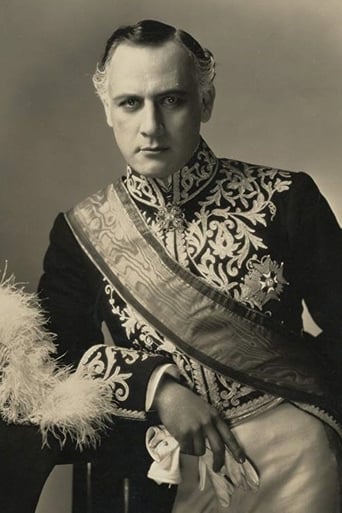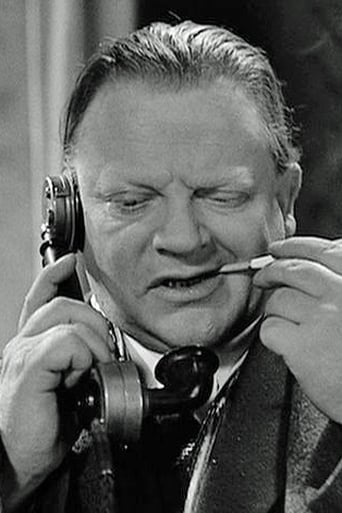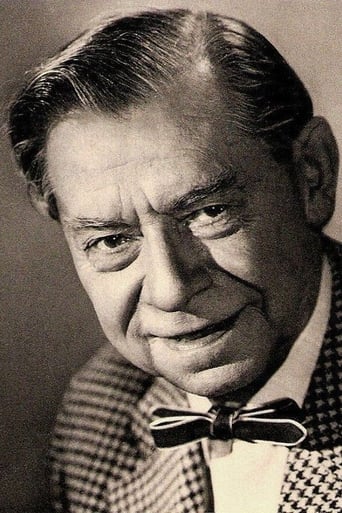SmugKitZine
Tied for the best movie I have ever seen
Beystiman
It's fun, it's light, [but] it has a hard time when its tries to get heavy.
Janae Milner
Easily the biggest piece of Right wing non sense propaganda I ever saw.
Sarita Rafferty
There are moments that feel comical, some horrific, and some downright inspiring but the tonal shifts hardly matter as the end results come to a film that's perfect for this time.
disinterested_spectator
Sometimes a book or a movie gets more praise than it deserves because it was banned somewhere. And what could be better for a movie than to have been banned by Joseph Goebbels himself, the Minister of Propaganda in Nazi Germany! Other than that, there is no explanation for why anyone thinks this movie is any good.If "Dr. Mabuse: The Gambler" (1922) was over the top, "The Testament of Dr. Mabuse" is absurd. The title character went insane in the first movie and was confined to an insane asylum. Then, Hofmeister, a criminal who once was a police detective, but was cashiered for bribery, goes mad out of fear of Dr. Mabuse. By the end of the movie, Dr. Baum, who runs the asylum, goes mad as well and has to be confined. But it does not stop there. The plot is so outrageous as to make one think the movie itself was produced by a madman.For starters, while Dr. Mabuse is in the insane asylum, he still manages to run a criminal organization, planning crimes down to the last detail. His motives are as mad as he is. Whereas in the first movie, he simply wanted power and the pleasure of manipulating the lives of others, in this movie he wants to drive the whole world mad by getting people hooked on drugs, which he supplies for free, and by causing so much terror and destruction that civilization will collapse, leaving nothing behind but crime as a way of life.Mabuse communicates with his henchmen by willing his thoughts onto a record, which plays when he so wills it, while a cardboard image of himself sits behind a curtain, casting a shadow. Do you dare ask how this curtain, cardboard image, and record player came to be set up in this room where criminals go to get their orders when commanded to do so by a piece paper with a typewritten message on it? Why, Mabuse just wills it all into place!Things get a little easier for Mabuse when he dies and wills his spirit into Dr. Baum, so now he has another body to occupy that can leave the asylum. But he loves the record gimmick so much that when Dr. Baum wants his servant to think he is in his quarters, the record player is turned on whenever someone wiggles the door handle, causing it to play the message, "I do not wish to be disturbed."Kent, a man who killed his girlfriend and her lover and went to prison for it, is forced by economic circumstances into Mabuse's criminal organization. Together with Lilli, the woman he loves, he decides to go straight. But before he can make it to the police station, he and Lilli are captured and brought to the room with the curtain, the cardboard image, and the record player. After the door is locked behind them, the record tells them they will never leave the room alive. Eventually, Kent and Lilli pull back the curtain and discover the setup. Then they hear ticking, the sound of a time bomb. What better way to have a couple of people killed than to blow up your own headquarters! But when you can will yourself into another body, will your thoughts onto a record, will your thoughts through a typewriter onto a piece of paper, and will an entire setup consisting of record player, curtain, and cardboard image, and finally will a time bomb into existence as well, then I suppose it is child's play to will the whole setup into existence somewhere else after you destroy it with that time bomb just to kill two people.But all is not lost. We can tell ourselves that this movie was an attempt by Fritz Lang to warn us of the danger of Adolf Hitler and that will make the movie profound somehow.
talisencrw
There is such a joy I get when I watch the crime or noir films of Fritz Lang. Here's a man that truly understands evil. Though I have yet to see all of his Mabuse works, I can't wait to see every single interpretation--both by him and others--of one of my very favourite cinematic villains. Furthermore, I greatly relish seeing the works of great filmmakers who use subtlety and cleverness to get their art out in the most difficult of circumstances, using their craftsmanship to take pokes at the oppressive regimes they are working under (i.e., Eisenstein, Lang, the Czech New Wave, Jafar Panahi). Essential for any fan of the genre, and worth both purchasing and rewatching if you, like me, are a work of a remarkable director at the pinnacle of his profession.
calvinnme
... and it makes me want to buy the Criterion version with the commentary to see if it answers my questions. I watched it on TCM the other night, and there were wrap-around comments, but nothing that really touches all of the questions I have about this work.Was Fritz Lang, who directed and co-wrote this film, anticipating the Nazis, or were some of the attitudes of the characters just coincidences? We know Lang detested for the Nazis, because he left Germany in 1933 and did not return for 26 years.The story picks up where the earlier Mabuse film left off, with master criminal Dr. Mabuse in an insane asylum where for years he was comatose, but then his hand began to make scribbling motions. He was given paper. The scribblings turned to words over time. The words then turned to sentences that grew more logical with time, outlining the plans for a crime wave. At the same time, there is a crime wave going on in the city that seems to mirror Mabuse's scribbling. But with nobody but caretakers entering or exiting Mabuse's cell, how are these crimes being coordinated? Thus enters police commissioner Lohmann, to solve the crime wave.Lohmann is an interesting character. He picks up on details, but fails to pick up on something that will be obvious to the viewer and even to Police Squad's Frank Drebin. When Mabuse dies but the crime wave continues, and then somebody who has seemed fascinated by Dr. Mabuse the entire time practically stands on a chair and talks about "Mabuse the genius" in glowing terms, you'd think it would set off alarm bells in Lohmann's brain. It does not. Then there is the reaction of the criminals to the name "Lohmann". When some members of the gang are cornered in an apartment, they are brazen enough to shoot it out with what they think is a whole squadron of police. Lohmann arrives, gets impatient with this shootout, and just climbs the stairs with bullets still flying - one shoots off his hat. He pounds on the door with his cane and announces himself. "IT'S LOHMANN!!" cry the now panicked gang members, and they surrender. Huh?? They are not afraid of the police and their bullets but they ARE afraid of one man with a cane??? Then there is the criminal gang, always referring to "the boss". They themselves scratch their heads at the lack of profit in their crimes- for example pulling jewel robberies, taking the money to buy dope and then just giving it to people rather than selling it, per the instructions of "the boss. But when one fellow mentions it, another is quick to pipe in - you're getting a steady paycheck, why should you complain? This simplistic logic seems to keep the gang in check and carrying out orders to commit crimes they do not understand that are fraught with danger without question.Then there is the injection of circumstantial criminal gang member Kent. He was sent to prison for five years for killing his girlfriend and the man he thought was his best friend, the implication being he caught them having sex. Out of prison, the only job he can get is with "the boss" and his gang. Then another head scratching moment. When at the unemployment office, prior to joining the gang, he rants about the pointlessness of looking for jobs that are not there, and a girl who works there follows him out of the office and gives him some money - she practically has to force it into his hands - and with only a brief conversation between them, she shows up at his apartment probably weeks later claiming she loves him? Why??? Well, all of these characters come together in a suspenseful and satisfying conclusion, I will tell you that much. It does seem that Lang is trying to say much about the folly of unquestioning respect given to strong authority figures both good and bad - Lohmann and Mabuse, the importance and scarcity of a paycheck in Weimar Germany, and maybe even the redeeming power of love. I highly recommend this complex little film that gives us a fantastic tale with Germany immediately pre Third Reich as a setting.
robertguttman
Those who have never seen this truly bizarre thriller have been missing a rare treat. Yes, it was made way back in 1933. Yes, it is is black-and-white. Yes, it is in German, with subtitles. Don't allow any of that dissuade the viewer, because "The Testament of Dr. Mabuse" remains among the most bizarre and original thrillers ever filmed. Over the decades so many elements from this amazing film have been copied by other filmmakers that it would take far too long to enumerate them here. However, watch this movie and I'm sure you'll have no trouble spotting a dozen examples or so without too much trouble.The story involves a crime wave in a German city that may, or may not, be controlled by an insane criminal mastermind who, for the past ten years, has been existing in a catatonic state in an insane asylum (they used to call them that in those days). Viewers who considered Terry Gilliam's "12 Monkeys" to be really original and bizarre will be astounded at just how far ahead of his time Fritz Lang actually was.In addition there were serious political overtones to "The Testament Dr Mabuse". Whether those political overtones were intentional or not is still a matter of debate. However, there is no question that the idea of a movie about a mad criminal genius assuming power was not lost on Adolf Hitler's Nazi regime, which assumed power in Germany the very same year this movie was produced. The result was that the movie was immediately banned in its home country and Fritz Lang had to make a hasty departure for Hollywood. For that reason alone this movie would be worth seeing, even it were not as remarkable a piece of film- making as it is.

